(June 13, 2024) After obtaining two fully funded PhDs. – one in cytogenetics from Ranchi University and another in molecular biology from Russian Academy of Sciences, St. Petersburg – and a postdoc degree from Aarhus University, Denmark, on a UNESCO fellowship, Dr Narendra Prasad Singh began his research career. He has since dedicated over 25 years to research in molecular biology, molecular immunology, and immunotoxicology in the US. Dr Singh has come a long way, but has not forgotten the struggle of his early days, back home in the small town of Daltonganj (now Medininagar) in Jharkhand (then Bihar). He continues to dedicate his efforts towards helping the less privileged realise the American Dream, just as he did.
Having played an integral role in founding the NGO SHRMS in Daltonganj, which focuses on the cyclic development of tribal communities in over 25 villages, and later working with underrepresented African-Americans at the University of South Carolina, Dr. NP Singh truly found his calling.
Talking about empowering African American students who have benefited from his mentorship, Dr Singh tells Global Indian, “This has been the most fulfilling assignment and I feel very proud of it, as it allowed me to mentor students from minorities who are poorly represented in research. I don’t want to compare but African Americans are very similar to SC/ST populations of India, poorly educated and economically very backward. I am happy to share that all the students that I mentored are doing very well.”
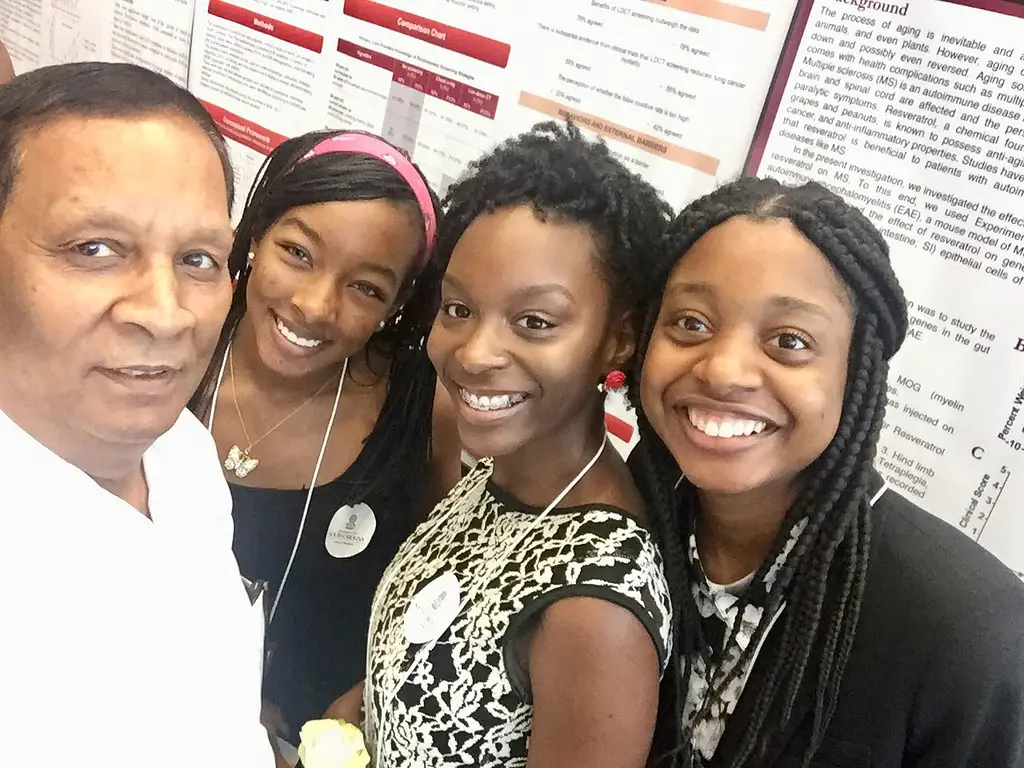
Dr Narendra Prasad Singh with his mentees
At the South Carolina School of Medicine, Dr Singh serves as the Director of the Analytical Core of the NIH-NCCAM Center for Inflammation and Autoimmunity and as the Program Director of Immune Monitoring Core (Immune Modulation) of the Center for Dietary Supplements and Inflammation. He has published more than 125 research papers in high-impact journals such as Immunity, PNAS Nexus, Cancer Research, JBC, Molecular Pharmacology, and Immunology, contributed towards securing close to $50 million in NIH grants, chaired numerous national and international meetings, and presented his work in countries including Australia, China, Dubai, The Netherlands, and India. Dr Singh also serves as the associate editor of Frontiers in Immunology, one of the most cited journals in the field.
The fulfilment that comes from being of help
Even while trying to find his footing and pursue a research career beyond Daltonganj, Dr. Narendra Singh made efforts to help others in any way possible. One such instance involved a rickshaw puller named Baiju. One morning, while riding on Baiju’s rickshaw to GLA College Daltonganj, where Dr Singh worked briefly as a faculty member, Baiju expressed his desire to see his son admitted to college if he passed his board exams, and was willing to work day and night to fund his son’s education. “I was touched and told Baiju to see me once his son cleared the matriculation exam.”
When the board results were out Baiju came to Dr. Singh’s home with his son, who had passed with a second division, not the first division required for admission to GLA College. Despite the challenges, Dr. Singh personally requested the principal to admit Baiju’s son, who eventually graduated from the institution. Although he lost touch with Baiju and his son after moving abroad, he feels happy to have played a role in making their dream come true.
During the same period, Dr. Singh, along with a few friends, laid the foundation of the NGO named Society of Hill Resource Management School, led by Mr. Mishra, a retired forest ranger and father of a close friend. “The NGO’s motto is Chakriya Vikas (Cyclic Development) of the tribal people in Jharkhand, a predominantly tribal state,” he explains. “Starting with five villages, the NGO expanded to 25 villages, earning funds from the Ford Foundation and the Government of India.”
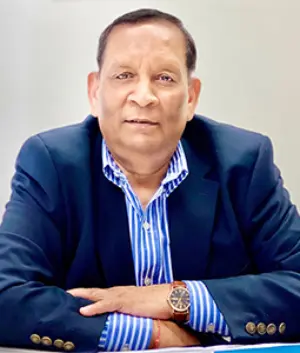
Dr Narendra Prasad Singh
Although Dr Singh’s direct involvement with the NGO diminished after moving to the US, he takes pride in its ongoing growth. “Currently, the NGO operates a training centre that empowers villagers in cyclic development concepts and become leaders of change in their communities,” he says.
Mentoring American-African minorities
Always seeking opportunities to benefit the underprivileged, in the U.S. Dr NP Singh has associated himself with South Carolina–Advancing Diversity in Aging Research (SC-ADAR), a programme funded by the National Institute on Aging. SC-ADAR aims to enhance the research experience, academic skills, and career readiness of underrepresented minority students in ageing-related sciences, preparing them for advanced studies in science, technology, engineering, and medicine.
As part of the programme, Dr Singh mentors and engages select undergraduate students in a rigorous summer research training. The students conduct research in their desired field under his guidance, spending a summer in his lab and creating a research poster that is presented at the annual USC Summer Research Symposium. In addition to the lab curriculum, students also engage in a seminar-based curriculum where they learn more about ageing research as a viable career path.
Dr NP Singh is proud of the accomplishments of his mentees. “Some of them joined the medical profession and some of them are pursuing graduate programs. Their success gives me enormous satisfaction. It gives me the motivation to do something for others who truly need my help,” he remarks adding, “Helping underprivileged and economically disadvantaged people has always been my passion.”
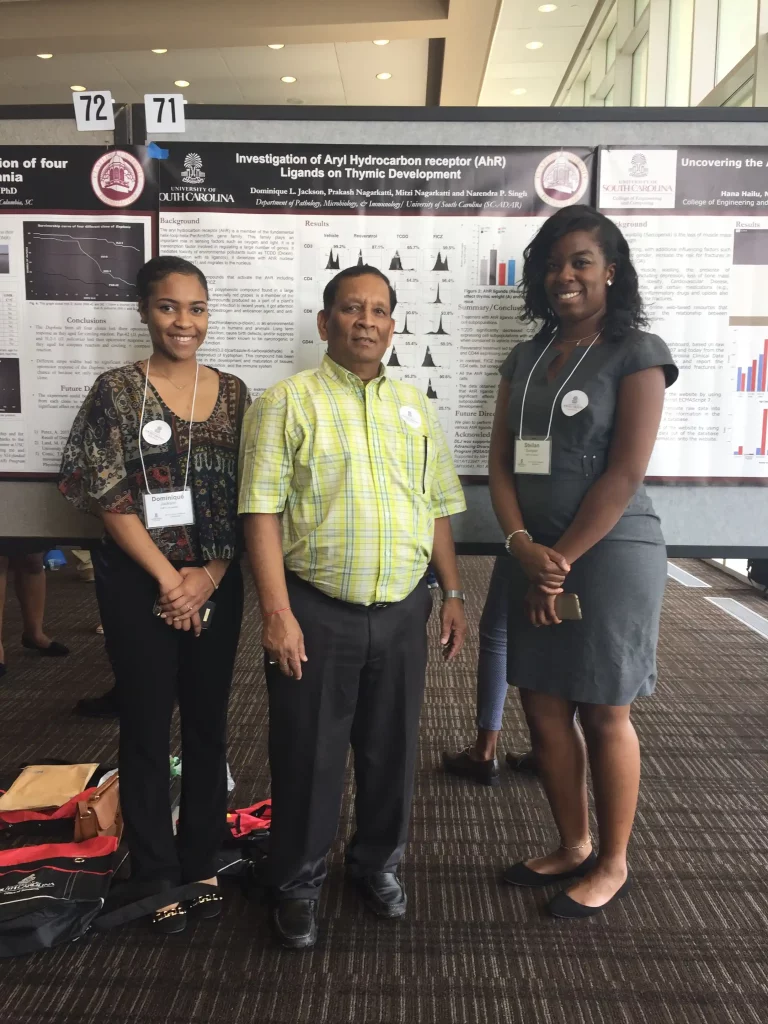
Dr Narendra Prasad Singh with his mentees
Understanding the value of mentorship from personal experiences
Good role models and receiving great mentorship during his early struggles in Bihar played a significant role in shaping how Dr Narendra Kumar Singh mentors his own mentees.
In the 1980s as a student, he excelled academically, earning a B.Sc. Honours (First Class First) and an M.Sc. (First Class First) in Botany. He received a CSIR scholarship from the Government of India for his Ph.D., which he completed under Dr. S. S. N. Sinha at Ranchi University. Reflecting on his mentor, Dr. Singh recalls, “Dr. Sinha not only mentored me but also provided full support and encouraged me to pursue my dreams. He was like a father figure to me.”
After completing his Ph.D., Dr. Singh secured a faculty position at GLA College in his native town of Daltonganj. Despite ranking second on the merit list, he was not placed in his specialised department of Botany, rather was promised a transfer that never materialised. This disappointment led him to seek opportunities elsewhere. Around this time, another mentor at Ranchi University, also named Dr. Narendra Kumar Singh, inspired him by moving abroad to work in a U.S. lab. “While seeing him off at the airport, I contemplated my own future abroad and became motivated to apply for a second Ph.D. overseas,” Dr. NP Singh remarks.
In 1986, he was accepted into a Ph.D. program at Purdue University but faced funding issues. Fortunately, he secured a paid fellowship in Russia and went ahead with the opportunity. Dr. Singh credits both his mentors, Dr. Narendra Kumar Singh and Dr. S. S. N. Sinha for significantly influencing his academic career and dreams.
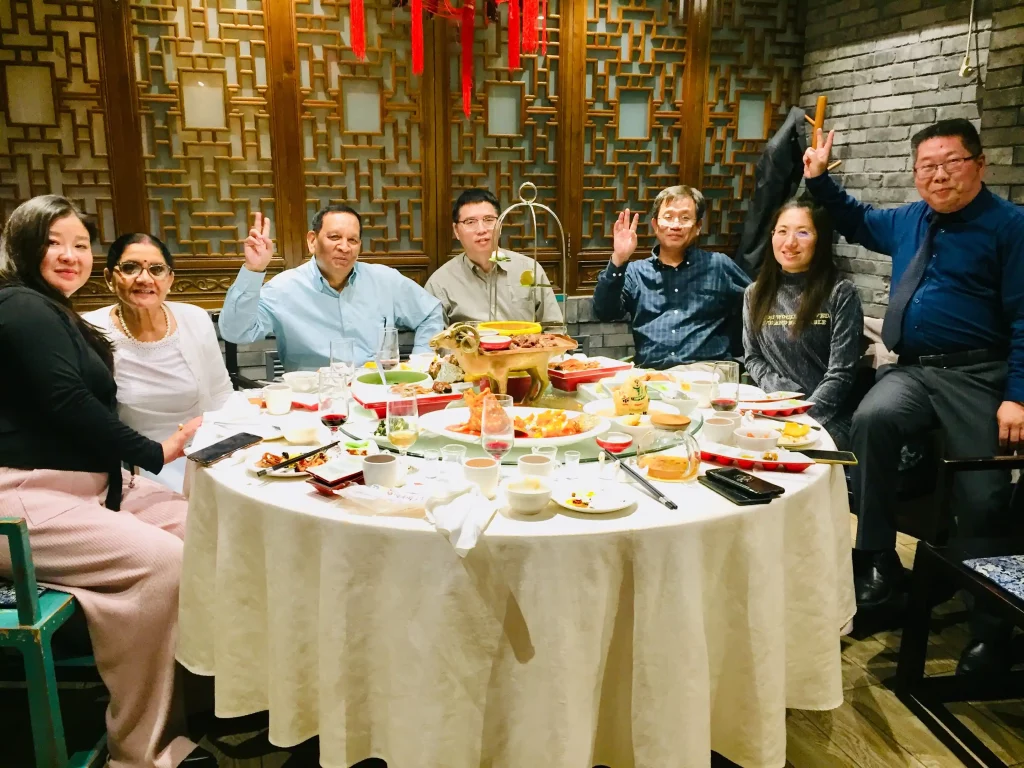
Dr Narendra Prasad Singh during a visit to China in 2019
Working on his dreams in the US
After completing his second PhD and postdoc studies abroad, Dr N P Singh has worked at many institutions in the U.S. including Auburn University, University of Louisville, and Virginia Commonwealth University.
Since 2005 he is associated with the University of South Carolina School of Medicine, and works as the Director of the Analytical Core of the NIH-NCCAM Center for Inflammation and Autoimmunity and also serves as a Program Director of Immune Monitoring Core (Immune Modulation) of the Center for Dietary Supplements and Inflammation funded by the NIH Center of Biomedical Research Excellence (COBRE) program.
“At present, we have several important projects, including studying the transgenerational effects of TCDD (Dioxin) in mice and investigating the role of the gut microbiome in the development of autoimmune and inflammatory diseases, as well as exploring possible treatments using gut microbiota,” tells the professor and researcher who has also indulged in research pertaining to plant sciences and molecular pathways involved in cancer, in the past.
His journey, from overcoming early career challenges in Daltonganj to pioneering research in the U.S. and providing guidance to American-African students, highlights his dedication to academic excellence, mentorship, and service to the underprivileged. Dr Narendra Prasad Singh’s achievements demonstrate that the influence of good mentors, coupled with one’s own perseverance, can have a transformative impact on both personal and professional success.
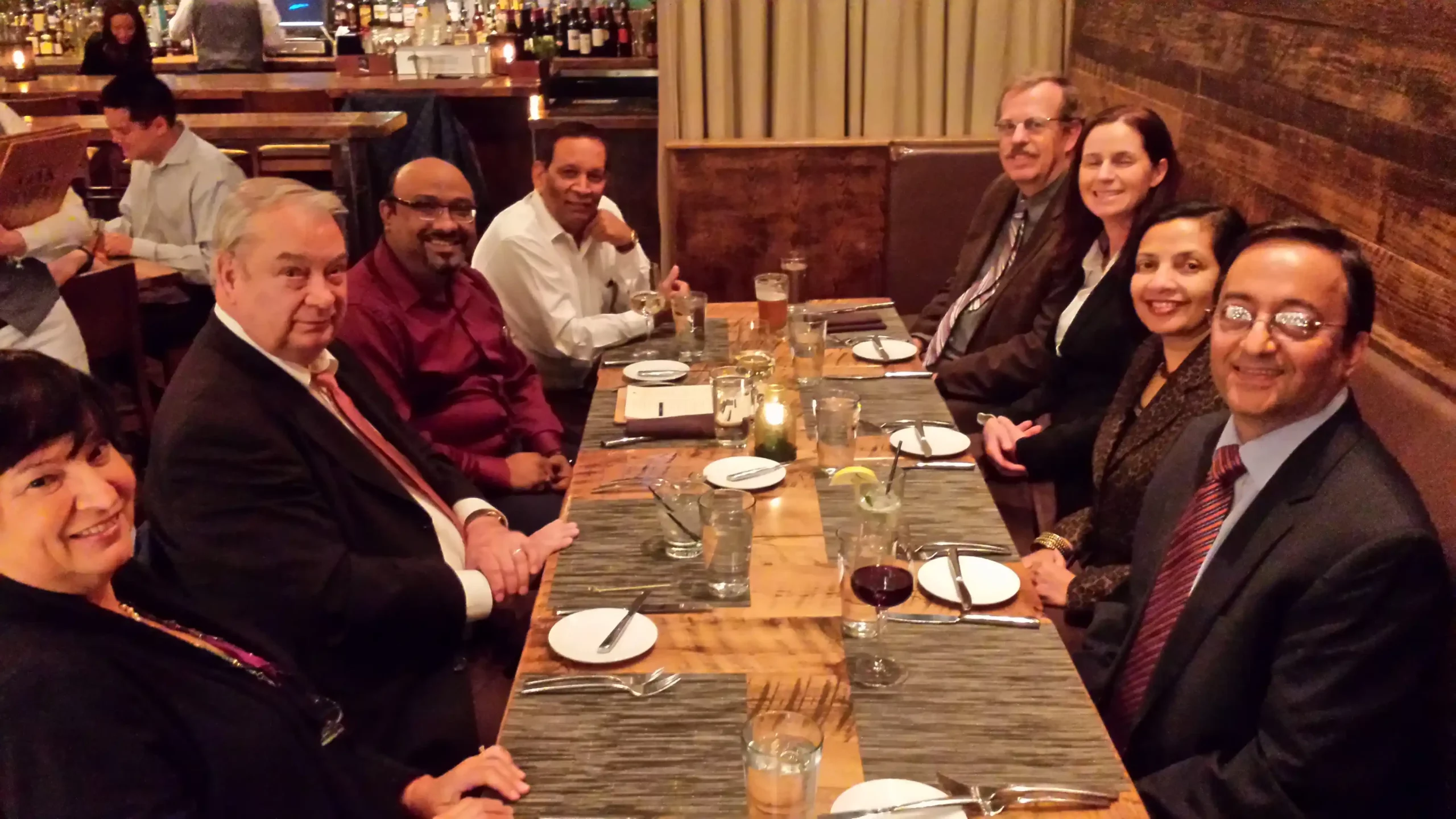
Dr Narendra Prasad Singh in a get-together with a nobel laureate
- Follow Dr Narendra Prasad Singh on LinkedIn





Great Narendra Jee, you are really great. You deserve much more as there are very few scientists who remain attached with their ground and work for underprivileged of the society. Starting from your school days you have been very emotional and helpful for the persons who really needed.
God bless you and your all family members and keep you happy always.
Congratulations!!!! keep Rocking!! Very Happy and Proud of you Uncle!
Happy to read this. Still having the sweet memories of our meetings at St. Petersburg. Vineeth.
This article really does an amazing job of highlighting my Dad’s accomplishments and all the individuals he’s helped along the way. He definitely lives by his principles! Really great article. Thank You so much for this beautiful gift Amrita. What a wonderful writing! Loved every bit of it! Such a PROUD feeling while reading!!!Thank You!
Proud of you grandpa